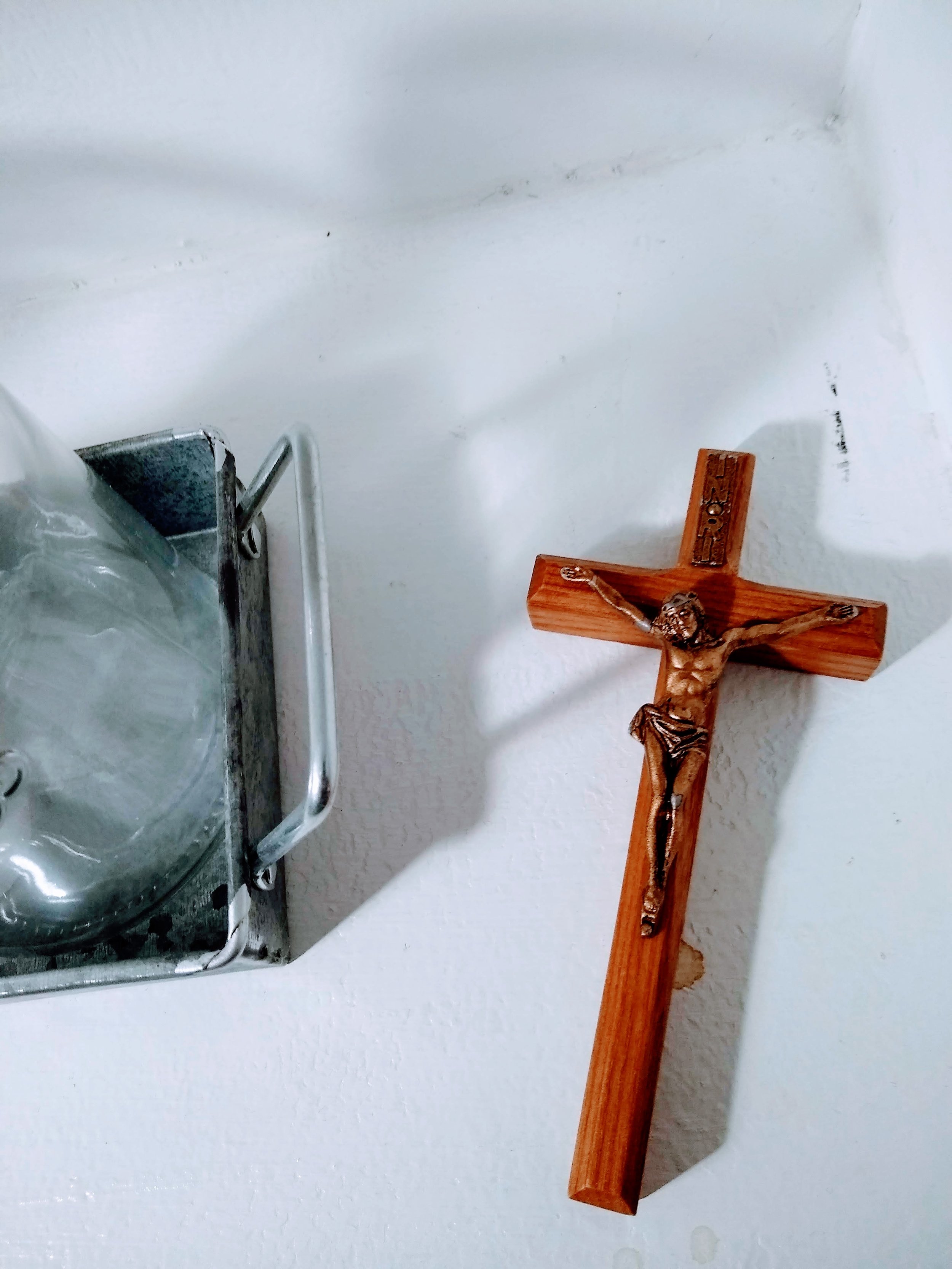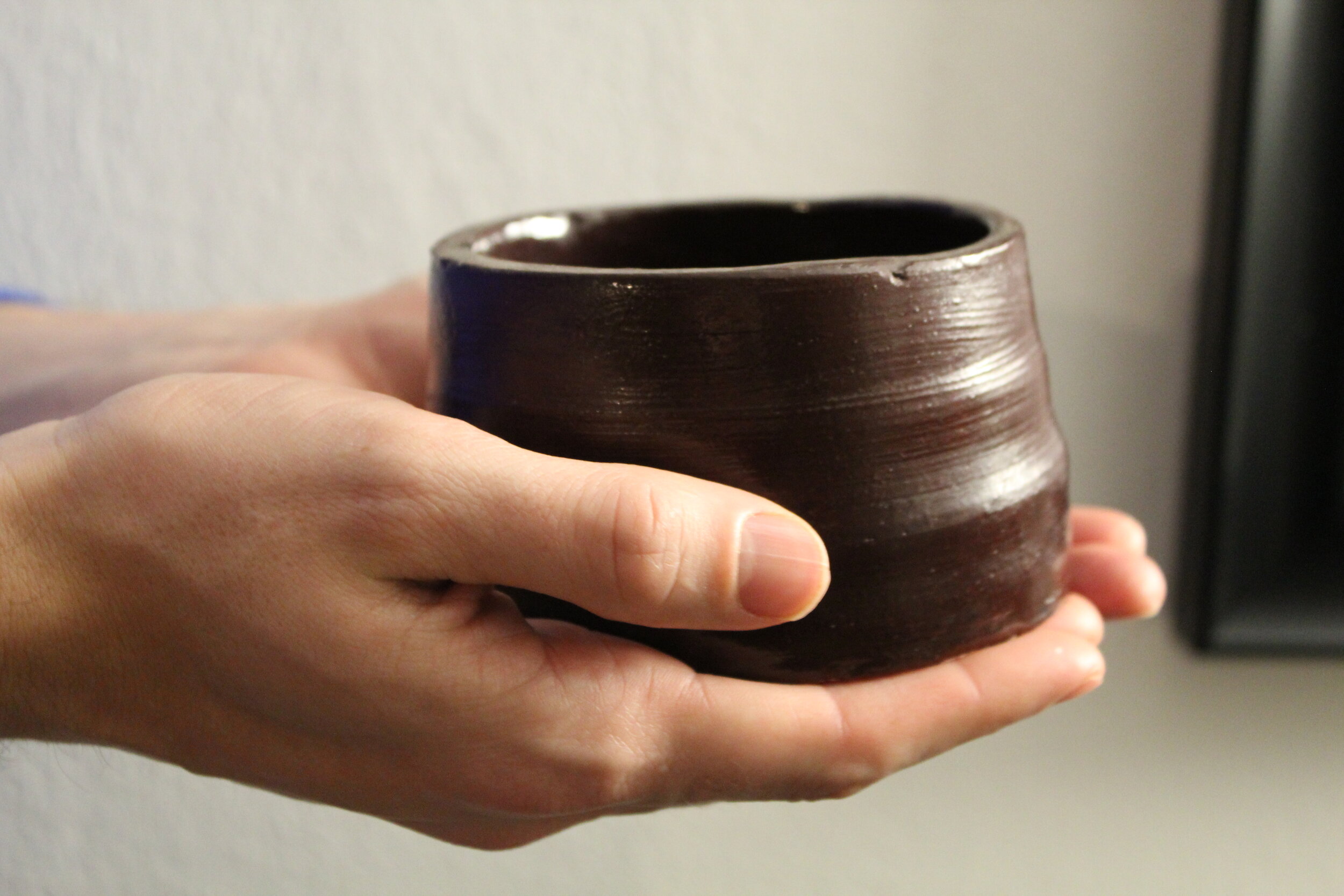Ash Wednesday Homily
The following post is the transcript of an Ash Wednesday meditation given this year at our local church. We have been in a tender season as a family and as a faith community, and something about this day— this blessed fragility— seemed particularly sacred. Thus, I decided to share it here, at the beginning of Lent, for continued conversation and connection.
Blessings on you friend—in every honest word, every true admission, every hard-won glimpse of wisdom, and in this sacred season of hungering and thirsting for life.
A few months ago, I heard a quote from author and Duke Divinity professor, Kate Bowler, about Lent.
She said “Lent is the time leading up to Jesus’ death where we practice being really, really honest about the lives we have.”
“Lent is the time leading up to Jesus’ death
where we practice being really, really honest
about the lives we have.”
And while Lent can be and is many things– a time of repentance, confession, turning, penance– I found Bowler’s focus on honesty very helpful. And after the month our family has had, I have found this season of honesty so necessary in new ways– so bittersweet but so healing.
If you’ve ever been in recovery or know someone in recovery, you have already realized that this honesty is the first step of any healing journey. One of my best friends married a recovered alcoholic and what i’ve learned from him is that for most people going through recovery the greatest moment of healing is often that first step in admitting the truth that they need help. Its no longer pretending or hiding or ignoring. There’s a healing the honesty of what is.
This carries on through the recovery experience. You start each AA meeting with silence or the serenity prayer:
God, grant me the serenity to accept the things I cannot change,
the courage to change the things I can,
and the wisdom to know the difference.
This is most certainly a great—and necessary— prayer for Lent.
And then each person says his/her name and their struggle. For example, “I’m Michaela and I’m an alcoholic.” Healing begins by telling the truth. And even greater healing takes place when that truth is allowed to take space in the community. The rest of the meeting responds “Hi Michaela.” And the honesty is welcomed. There is honesty about how many days sober you’ve been. You count the days, you name the hours, you bring to light the withdrawal and the relapse. You name how many years you've been free.
Lent reminds me of recovery because, like Bowler says, it must begin with a good look at what actually is.
Naming reality.
The real state of things.
It's a soul state of the union, if you will– 40 days of naming where we actually are, the real state of our hearts– not where we should be or want to be or ought to be or supposed to be.
But how things actually are.
What is true.
We name the good and beautiful ways we reflect God.
We name our strengths and deep goodness.
We see where we have grown and where God has worked.
And we also see where we are weak– to no fault of our own.
We see where we ache and grieve.
And, what can be harder, we confess where we’ve failed and fallen and chosen the lie over the truth. Where we’ve lived the lie over the truth.
Bowler calls these “the ways we trick ourselves into believing,
that our lives are something we’ve made,
that all our accomplishments and
successes and mastered mornings
add up to something independent of you [God].”
In Lent we face the false things and turn toward the truth. And we do it together.
No one is singled out. Like in AA, no one is even condemned. We together admit our frailty and our suffering and when we have chosen the lies over what is true. Together we turn to the truth even when it is painful and undoes us and may cost us, humble us, grieve us.
Because, as Jesus promises in John 8: “If you abide in my word, you are truly my disciples, and you will know the truth, and the truth will set you free.”
The truth will set you free.
Jean calls this divine truth-telling God flips the mirror on us. And Lent is this necessary season where we allow God to flip the mirror and we see our lives for what they actually are: we are these messy contradictions of humanity radically loved by God and filled by His Spirit– who are also simultaneously weak and imperfect and limited (at best) and also fallen and in need of saving from our own self-destruction (at worst).
I think this is what the Psalmist was talking about in Psalm 51 that we read/sang earlier– practicing this honesty, being truthful about the lives we actually have.
This prayer was written, as you may know, after David summoned Bathsheba and committed murder against Uriah. If you remember the story, it's odd because after this happens in 2 Samuel 11, David doesn’t even seem to know there is a problem.
Perhaps even this shows that we can become so blind to the holy love we are called to living in our cultures. The false ways of being can feel really normal after a while. We can become so accustomed to how other kings rule or how other neighbors live that we don’t even see any more how far we are from Truth and freedom and reality itself.
But God in his mercy sent the prophet Nathan to David and showed him the reality of his life– that he had taken and deceived and killed and betrayed. At one point Nathan speaks for the Lord when he says “all of this you’ve done in secret, and I will bring it all into broad daylight.”
The truth.
Honesty.
The lives we actually have.
And so we sing David’s prayer not because it originates in something holy or good moment. This prayer is born out of terrible realities. We sing it because the Psalmist goes to God with the truth. And we, too, sometimes need help being truthful about our actual lives. Eugene Peterson imagines David’s prayer this way in the Message (vs 1-6):
Generous in love—God, give grace!
Huge in mercy—wipe out my bad record.
Scrub away my guilt,
soak out my sins in your laundry.
I know how bad I’ve been;
my sins are staring me down.
You’re the One I’ve violated, and you’ve seen
it all, seen the full extent of my evil.
You have all the facts before you;
whatever you decide about me is fair.
I’ve been out of step with you for a long time…
What you’re after is truth from the inside out.
Enter me, then; conceive a new, true life.
Lent: a time to be honest about the lives we have.
I don’t know about you, but I haven’t betrayed a faithful friend, stolen someone’s spouse, and then killed anyone lately. And I trust that you haven’t recently either.
That’s not something I need to be honest about.
But there is still an honesty and truth-telling required of us, I think. For true healing and freedom and life with God we must live in the light, no matter how hard that is.
As you know the last month has been a real challenge for me. I’ve been recovering from a series of severe panic attacks. Its been a really humbling process on many levels.
One of the hardest parts of that was the disappointment of feeling like you’ve regressed. I told Jackson in December that I wanted to preach on February 12, to talk about God in the dark night of the soul and share about healing and mental health. I thought I would finally tell the story of God’s presence in my life (a story that has been working for over ten years) on the other side– from a place of victory.
And then here we are: back in the fragility and uncertainty and weakness and dependence that I honestly thought I would never go back to.
We are often told that if we just have enough faith or reach a point in spiritual maturity that we will outgrow our trials. And in a lot of circumstances, I think that can be true. But we will never outgrow being human beings. We will never outgrow having bodies or having genetics or having weakness. I believe we can overcome sin and live holy lives but we will never not be human beings.
And that is a truth to have before us during Lent.
Another thing I’ve learned over the past month is that, for me, panic is rooted in the truths that I have not or previously could not name. I am actually not an anxious person. I am usually pretty driven and adaptable. But over the past weeks, I have been examining my heart before the Lord about how and why this series of subconscious embodied fear welled up when it did. Why my mind felt fine but clearly my body, my nervous system, this deeper self was not okay.
What was coming out in my body was parts of my life that my mind was not even aware of. Maybe for you this comes out in panic or maybe it is rage or depression or addiction. And so for me, on the mornings or evenings when things started to flair up (a wave of heat or dizziness or tingling begins) healing looked like naming all my fears, often out loud. Being honest about them, bringing them into the light:
I am afraid God will remove his presence from me if I make a wrong decision.
I fear that if a church leader shows doubt or weakness or failure, I will be rejected.
What if I never get better?
Your family will resent you if you don’t get better and start pulling your weight.
(And there were/have been a lot of other fears, too. Shadowy ones way beneath the surface that I will spare you.
And as I name the things, friends, being honest about them to myself and God and sometimes other people, there was healing. I didn’t even have to refute them all the time. When they simply came out of hiding they lost their grip on me. The light casts out darkness.
(Now in the spirit of honesty, this is in addition to medical care and lifestyle changes for me, but it's a real spiritual component of holistic healing– to name the truth.)
In fact, one morning after a really restless sleep, I awoke with three words running through me like a mantra.
Slow
Prayerful
Honest
Healing words to guide me in this season but perhaps all of us this Lent, beginning now on Ash Wednesday.
Today we recite perhaps the most honest and universal statement any of us can make:
from dust we’ve come and to dust we shall return.
Bowler reminds us:
“We live in a culture that tells us we are #blessed when we are independent, perfectable, and have it all together. But on Ash Wednesday, we practice the opposite. Today, we proclaim that blessed are the fragile…This is a counter-cultural truth-telling when we lay down our illusions of durability at the altar.”
We are not infinite. We are not limitless. We are not exempt from struggle or pain.
We get honest about that, allowing it to be smeared across our foreheads. We let the truth mark us.
Because this is the first step of any recovery, any real healing.
We tell the truth.
Jackson is about to come and bless the ashes before we receive them– to mark us with both a blessing of the truth of our human lives and a call to honest seeking of the Lord this Lent.
And this year, I would like us to feel that smear of humbling truth as a blessing.
As Kate Bowler said, “Blessed are the fragile.”
But perhaps also what Jesus said on the mount:
“Blessed are the poor in spirit,
Blessed are those who mourn,
Blessed are the meek,
Blessed are those who hunger and thirst for righteousness,
Blessed are the merciful,
Blessed are the pure in heart,
Blessed are the peacemakers,
Blessed are you who are persecuted because of righteousness, who suffer, who struggle, who are weak, all while following our Christ– the way, the truth, and the life.”



